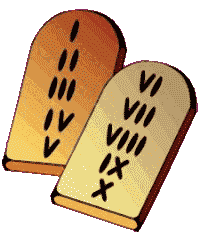 The Catechism of the Catholic Church (CCC) contains an interesting tension of ideas. It affirms our duty to obey civil government according to Scriptural, Christian principles:
The Catechism of the Catholic Church (CCC) contains an interesting tension of ideas. It affirms our duty to obey civil government according to Scriptural, Christian principles:
2240 Submission to authority and co-responsibility for the common good make it morally obligatory to pay taxes, to exercise the right to vote, and to defend one's country:Pay to all of them their dues, taxes to whom taxes are due, revenue to whom revenue is due, respect to whom respect is due, honor to whom honor is due.45
45 Rom 13:7.
but just two paragraphs later, it adds this, also based upon Scriptural principles:
2242 The citizen is obliged in conscience not to follow the directives of civil authorities when they are contrary to the demands of the moral order, to the fundamental rights of persons or the teachings of the Gospel. Refusing obedience to civil authorities, when their demands are contrary to those of an upright conscience, finds its justification in the distinction between serving God and serving the political community. "Render therefore to Caesar the things that are Caesar's, and to God the things that are God's."48 "We must obey God rather than men":49
48 Mt 22:21.
49 Acts 5:29.
In another section, it more exactly delineates the proper understanding of human authority, as follows:
1902 Authority does not derive its moral legitimacy from itself. It must not behave in a despotic manner, but must act for the common good as a "moral force based on freedom and a sense of responsibility":21A human law has the character of law to the extent that it accords with right reason, and thus derives from the eternal law. Insofar as it falls short of right reason it is said to be an unjust law, and thus has not so much the nature of law as of a kind of violence.221903 Authority is exercised legitimately only when it seeks the common good of the group concerned and if it employs morally licit means to attain it. If rulers were to enact unjust laws or take measures contrary to the moral order, such arrangements would not be binding in conscience. In such a case, "authority breaks down completely and results in shameful abuse."23
21 GS 74 § 2.
22 St. Thomas Aquinas, STh I-II,93 3, ad 2.
23 John XXIII PT 51.
No one is above the law; the Christian must obey legitimate authority. The question is: When our government forces us to subsidize the abortion holocaust via our tax dollars, is this an example of legitimate authority, or of an authority that has broken down completely? When our courts and legislators usurp divine authority, when they redefine marriage, strip the innocent of their rights, and compel our material participation in these crimes, are we obliged to obey them, or are we obliged to obey God's Law instead?





No comments:
Post a Comment